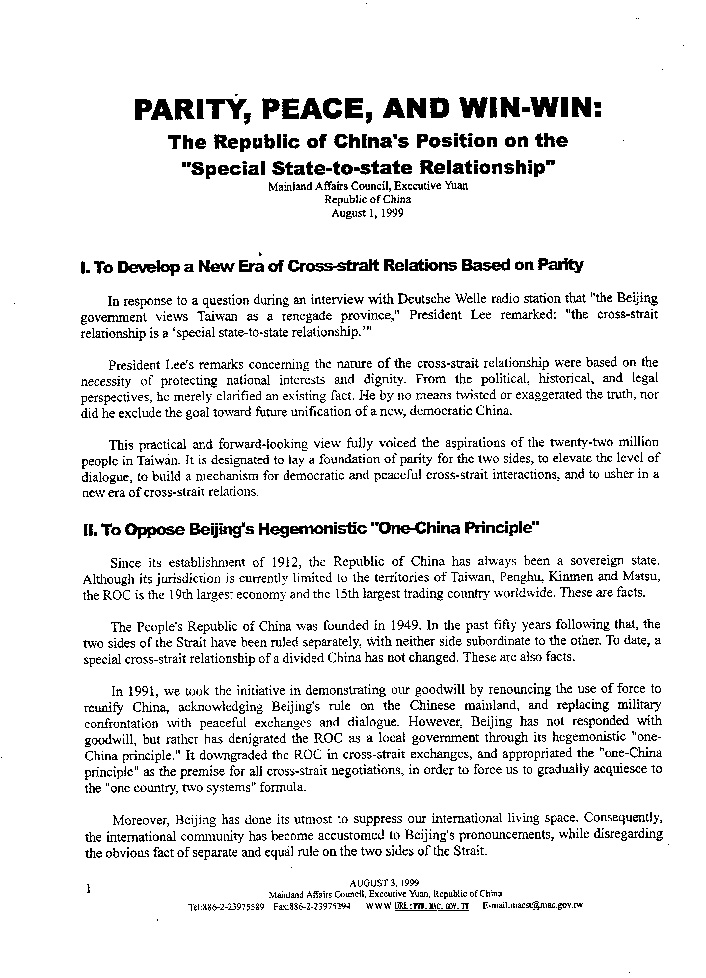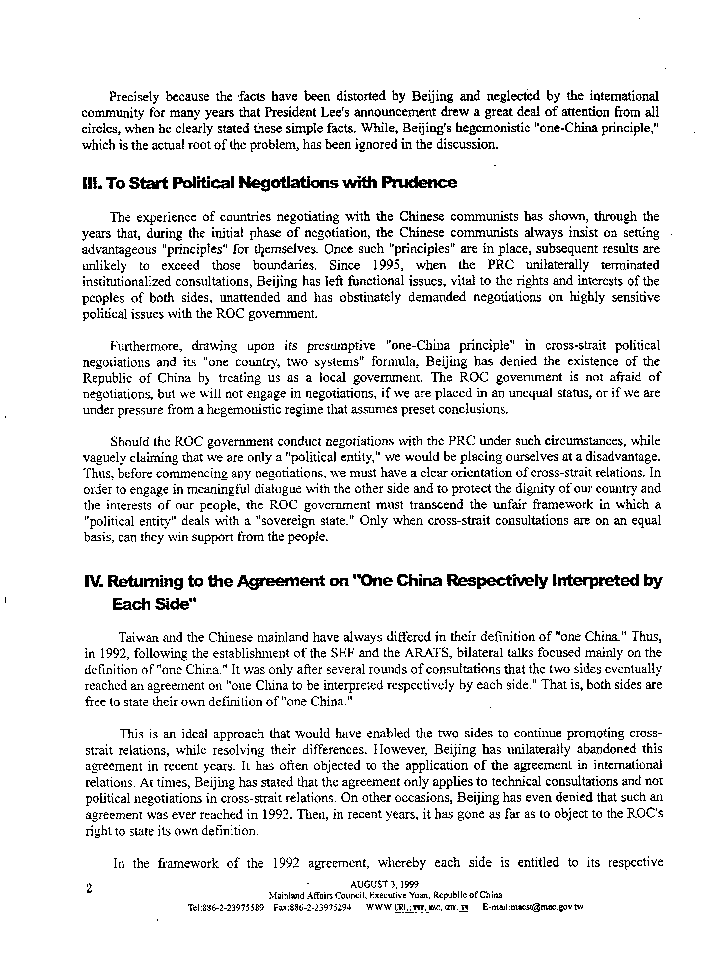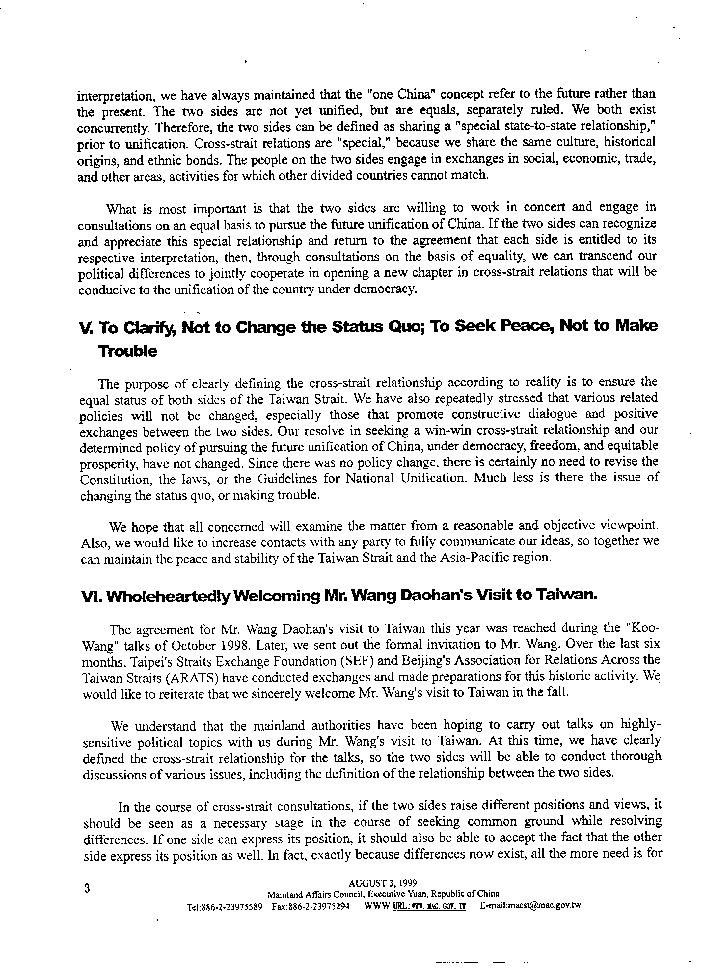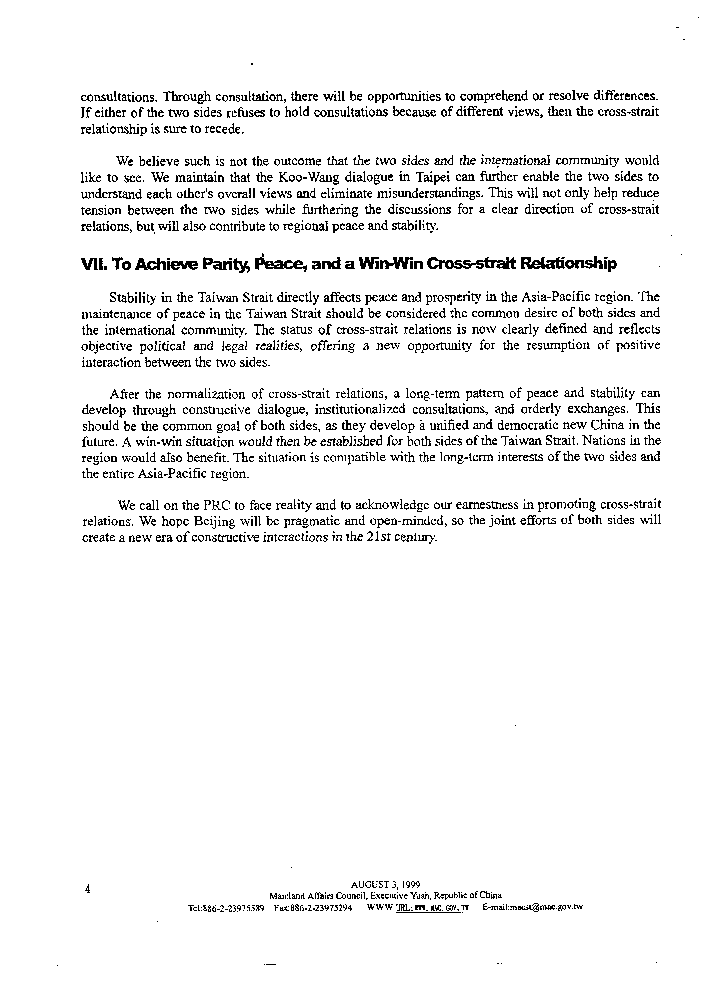The new history expresses how Chiang Kai-shek's once glorified troops really treated Taiwan, facing defeat by communist forces on the mainland. Chiang began sending men to prepare for his arrival on Taiwan, when locals rose up in revolt on February 28, 1947. The nationalists slaughtered more than 50,000 Taiwanese and aborigines during a monthlong crackdown. The infamous "2/28 incident" paved the way for four decades of oppression known as the " white terror." Taiwanese were not allowed to speak their native tongue or even to mention 2/28 until years after the passing of both Chiang and his son, in 1988. The curriculum began to change with the 1994 election of Lee, native Taiwanese President. Under Lee, native Taiwanese have sidelined the mainlanders politically. Democratic Taiwan with new Taiwanese is coming after independent thinking, in tune with Taiwan's new political freedoms. Who is "trouble-maker"? The question that needs to be asked now is this: since the whole point of resurrecting the Koo-Wang talks was to keep the Clinton administration happy, and since that administration has shown itself to be shamefully partisan, then why bother with Koo-Wang talks at all? China is clearly in no mood to want to reach an agreement about anything Taiwan might be interested in. So Wang's visit will only serve as another display of insufferable Chinese arrogance, after which the meeting will be deemed a failure because of "Taiwanese intransigence", allowing the U.S. State Department's China-appeasers to redouble their "Taiwan is a trouble-maker" rhetoric. After 20 years, Taiwan is reforming to new Chinese hope, but communist China keeps nationalism and holds dictatorship still. Taiwan is changing into real new state, but U.S. insists "one China policy" for about 20 years. On July 18, Clinton placed a 30-minuste pone call to President Jiang Zemin, assuring the Chinese leader the U.S. still supported a "one China" police. Lee had seemed to contradict his sacrosanct doctrine with his July 9 comments claiming a "special state-to-state relationship" with Beijing. Clinton subsequently said at a White House press conference that he was " not entirely sure ... What the Lee statements were trying to convey" --- a polite way saying he knew exactly what Lee was trying to say but didn't want to hear it. Unfortunately, Taipei's whispers just to tell the truth instead a rebound of Beijing's thunder. We are all welcome 26 U.S. senators sent a joint letter to the White House this week. In the letter, they asked President Clinton not to pressure Taiwan because of Lee's "state-to-state relationship policy statement that has infuriated Beijing. "We fully support democratically-elected President Lee and the people of Taiwan in their search for greater international status," the letter said. A friend in need is a friend indeed. Taiwan wants to keep this kind of justice urgently. From commentary of the Los Angeles Times (August 1, 1999) --- Meanwhile, politically, Taiwan is now democratic with all important officials directly elected by the people. Anything and everything can be, and is, publicly discussed in the media. No topic is too sensitive, nothing is taboo. In this respect, Taiwan may now be the freest society in Asia. ... Given all the above, if a country like Taiwan isn't worth fighting for, what country would be? Taiwan needs your support.
|



